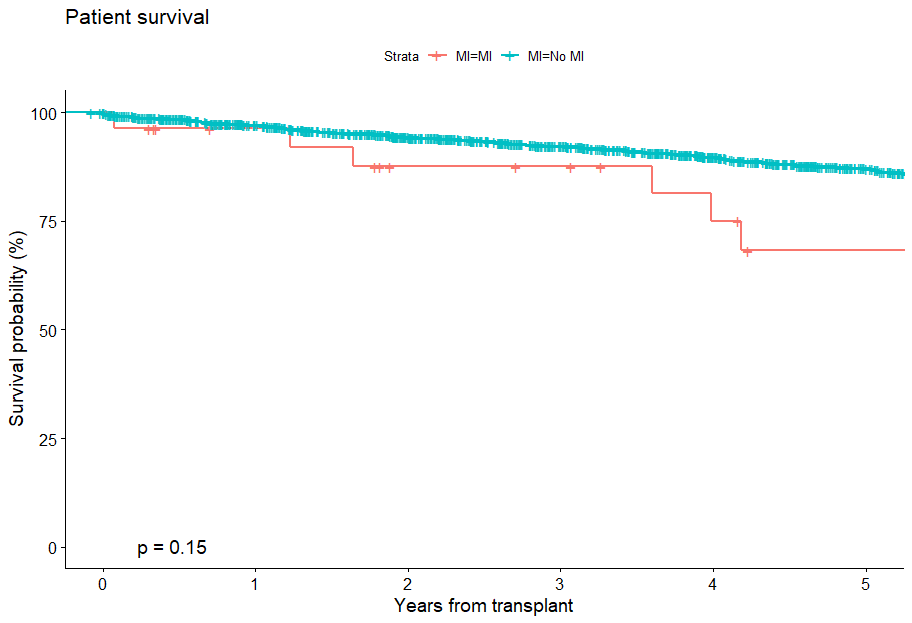
Post-operative myocardial infarction after renal transplant: setback or disaster?
Joanne Devlin1,2, Karen Stevenson1, David Kingsmore1,2, John Asher1,2.
1Renal and Transplant Surgery, Queen Elizabeth University Hospital, NHSGGC, Glasgow, United Kingdom; 2ICAMS, University of Glasgow, Glasgow, United Kingdom
Introduction: There is controversy surrounding the role of pre-operative cardiovascular screening for potential transplant candidates. Postoperative myocardial infarctions (MI) are wide ranging in their clinical picture, and a balance is needed between the risk of post operative MI against delayed listing or denial of transplant.
Methods: We retrospectively reviewed all adult renal transplant recipients in our centre from 2010 to 2021 to identify patients with MI within 30 days following transplant, based on a diagnosis of an MI in the electronic record, an MI mentioned on the patient discharge letter, or a Troponin I level of 35 or more with a 20% change (from the Fourth Universal Definition of an MI (2018)). We reviewed the patients who had an MI, including past medical history, medications, and pre-operative cardiac investigations.
Results: Of the 1627 adult transplant recipients over the 11-year period there were 27 patients who had a post-operative MI. 18 patients were male (67%) and 9 patients were female (33%). The mean age of the patients with an MI was 61.5 years, with a median age of 61 years and minimum of 45. 8 patients were diabetic (30%). Comparing patients over 45, 1-year patient survival was noted to be 96% both in the MI group and the non-MI group, while 5-year patient survival was 68% vs 83%. 5-year uncensored graft survival, including deaths with functioning graft, was 68% vs 74% for recipients without MI.

Conclusions: Post- operative MI occurred in 1.6% of transplant recipients but was not associated with significantly reduced 1 year or 5 year patient survival post transplant suggesting that current cardiovascular assessment for transplant results in satisfactory cardiac outcomes post transplant and the risks from delayed listing should be weighed against perceived benefits of asymptomatic screening. Further work is needed to elucidate MACE outcomes in the assessed but non waitlisted population.

right-click to download
